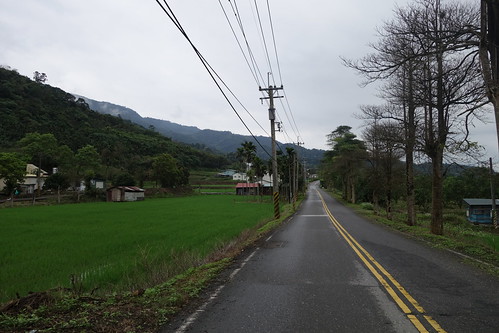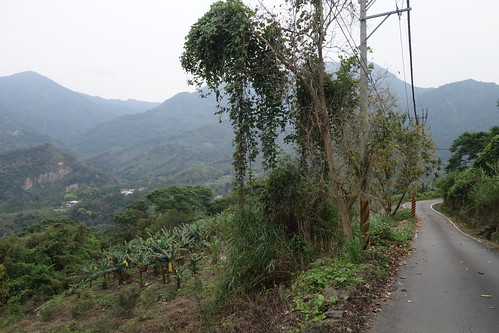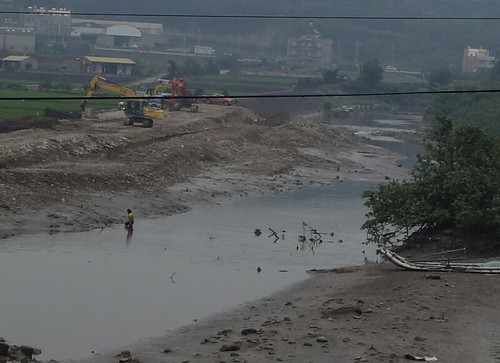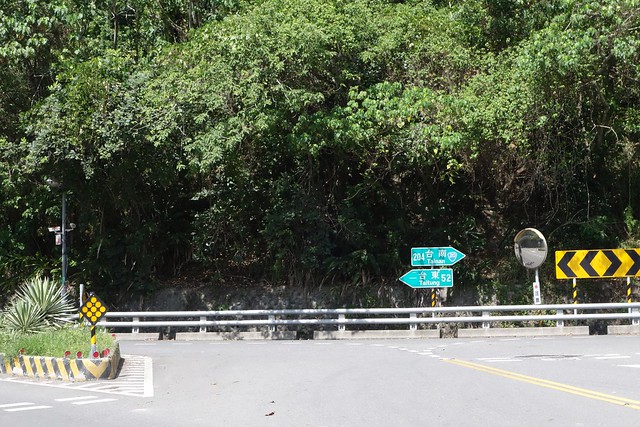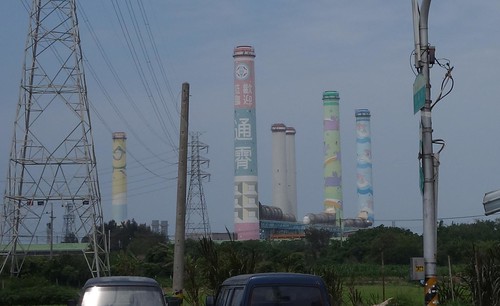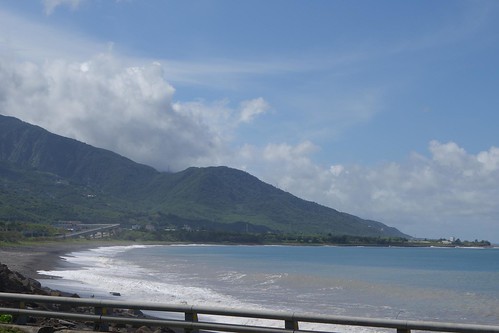 Taiwan's China Dilemma: Contested Identities and Multiple Interests in Taiwan’s Cross-Strait Economic Policy
Taiwan's China Dilemma: Contested Identities and Multiple Interests in Taiwan’s Cross-Strait Economic PolicySyaru Shirley Lin
Stanford University Press
304 pages
One of the joys of operating this blog is the privilege of meeting incredible people, listening to them talk, and then reading their incredible books. Few have merited these encomiums more than Shirley Lin.
She arranged a meeting with me in Taipei to give me a copy of the book, and then talked at me nonstop, ideas, insights, histories, stories, more ideas, more insights, pouring out of her, an Amazon at full flood. I think it took me until about 40 minutes in to complete my first sentence.
A former partner at Goldman Sachs, Lin teaches part of the year in Hong Kong, and the part in Virginia. She was born in Taiwan and comes from humble stock: one of her grandmothers sold gong wan in the Yuanhuan Market on Nanjing W road for decades. Few people have her breadth of experience in both the financial and academic worlds, as well as her deep Taiwan roots, making her uniquely qualified to write this work.
The major idea of this work is that "Identity is treated as an integral part of a more comprehensive understanding of how the Taiwanese have dealt with their China dilemma." Following Alexander Wendt, she argues that values, such as identity, are how economic interests are chosen. Lin supports her argument with a (1) comprehensive historical review of the debates over the economic approach to China and the rise of the modern Taiwan identity that is (2) not pro-China or pro-KMT but well balanced and inclusive and (3) buttressed by charts and graphs of every type and kind. In addition to placing identity at the heart of the cross-strait decision-making process, Lin also uses the distributive effects of the economic engagement with China on Taiwan, effects that have strong explanatory power for the choices the Taiwanese have made over the last 15 years. Up to date, she observes that Taiwan's identity is rooted in shared democratic values. She also puts her finger on the recent changes in identity as class and socio-economic cleavages created by interaction with China. In short, this is a meaty and informative work that demonstrates a deep grasp of the topic at hand.
Lin's framework for understanding the debates is eclectic, and she has little patience with the propagandistic pro-China mutterings of the kind of Blue scholar who regards Taiwanese rejection of economic ties with China as a form of irrationality, dismissing them as facile:
"Because of the shortcomings of these perspectives, a highly influential line of analysis attributes the otherwise inexplicable to the role of identity in Taiwan's domestic society. One approach views identity as artificially constructed by opportunistic politicians engaged in "identity politics," appealing to groups to adopt or sustain a certain identity in order to mobilize support for particular political leaders or public policies on that basis. According to this approach, such identity politics has led Taiwanese voters to act emotionally or even irrationally when considering Taiwan's economic policy towards China (K. Chen 2004). National identity has no intrinsic value in this kind of analysis; it is simply an outcome of political contestation, in which entrepreneurs are manipulating identity for political gain. But even though "identity politics" can be an easy way of explaining behavior that departs from rationalist predictions (L. Cheng and Keng 2009; S. C. Hsu 2007), this perspective can overlook the fact that Taiwan's unique history and values have created a deep sense of national identity that should not be dismissed simply as false consciousness created by a small group of extremists"(p19).Historically, the book focuses on the period between the missile crises in the 1990s and the run-up to the signing of ECFA under the Ma Administration in 2008-2010, and carries the history through to the Sunflowers, chronicling the shifts back and forth under successive Administrations. Under the Lee Administration the debates over how to engage China were forthrightly painted by both sides in terms of identity, with the diehard KMTers throwing language at the Taiwan side that will be familiar to anyone who has followed the debates over ECFA and the services pact. Little has changed in that regard.
The Lee era gave way to Chen Shui-bian and the debate over the opening to China, which resulted in an economic boom in Taiwan. Lin uses the semiconductor industry as a case study for understanding the cross-currents of economic decision-making and identity. That industry is the perfect choice: in 2008, when the DPP was fielding Frank Hsieh for the presidency, I sat down with a friend of his to chat about the election, and the semiconductor industry was the topic of conversation, and not very happily either.
Lin's up-to-date understanding shines in her discussion of the Sunflowers and the Ma Administration. Unlike so many authors who assigned Sunflower objections to the services pact to identity politics, Lin's analysis recognizes that their objections were rooted in practical and informed understandings of the effect of the pact on the Taiwan economy.
I can't recommend this book enough. Detailed, packed with information and statistics, and very conservatively argued, this work should be on the shelf of everyone interested in the debates over Taiwan's economic future.
_______________________
[Taiwan] Don't miss the comments below! And check out my blog and its sidebars for events, links to previous posts and picture posts, and scores of links to other Taiwan blogs and forums!
